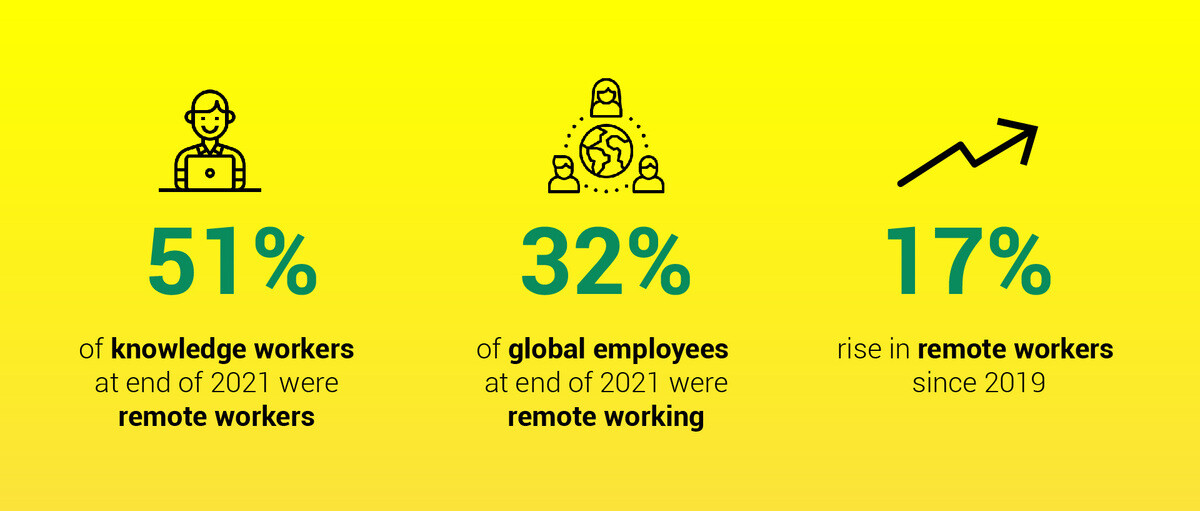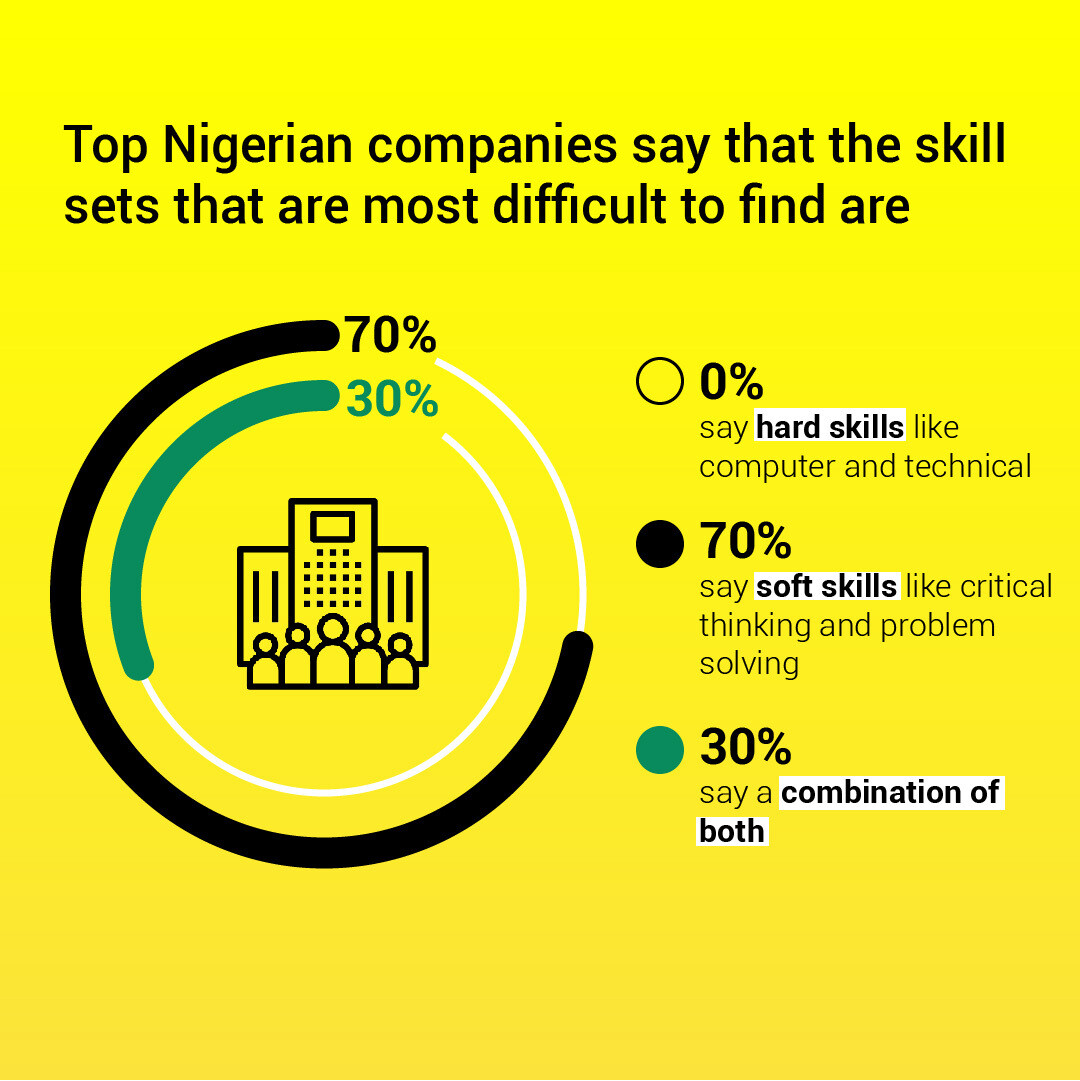The world is a shadow of what it was two years ago. Remote learning changed the academic model as people discovered that they didn’t need to travel vast distances and spend lots of money to get an international degree. At the same time, employers soon came to the stark realization that they could draw on a wider talent pool as remote working became more of the norm, than the exception. This triggered a wave of remote working jobs that were never on the table before.
HR managers are now getting the pick of employees, even in geographies outside of theirs. Aside from factory workers, and healthcare and restaurants, the virtual office is everywhere. Today it is not uncommon for an American working for an American company to be working out of Africa, and vice-versa. For this to work though, and work well, employees need to either upskill or reskill to ensure that they fall in line with the digital transformation strategies of their employer. Digital skills and digital agility are a must-have for modern workers, or they run the very real risk of becoming organizational dinosaurs.
This sentiment was echoed by over 20 senior HR Leaders from global companies such as EY, Schneider Electric, and 9Mobile that were present at a recent roundtable discussion event hosted by Nexford University where topics under discussion included employability and skills, talent attraction and retention, engaging a remote workforce, and learning and development.
1. The job market is more competitive than ever
Not only do employees need to update their skill sets to ensure their CVs join the ‘to be considered’ pile, but for job seekers to consider working for a company, companies must change the way they approach attracting and retaining employees.
Companies need to invest in learning and skills development, enhancing the employee experience, and granting employees the autonomy to make changes that will positively impact their working lives, which ultimately boosts productivity and company profitability.
Talent attraction and retention can rest on a number of key areas that will skill more employees to be leaders and take up more leadership positions. From the outset, companies need to introduce leadership training to ensure that workers understand that every position is a leadership position, then foster that through granting more autonomy, accountability, and ownership.
2. Remote working is proving to be the way to go
By the end of 2021, 51% of all knowledge workers worldwide are expected to be working remotely, up from 27% of knowledge workers in 2019, according to Gartner, Inc. Gartner also estimated that remote workers would represent 32% of all employees worldwide by the end of 2021, up from 17% of employees in 2019. And they were right. It’s now really a case of adapt or die for companies who don’t address this trend.

Companies need to stop the micro-managing culture and realize that productivity can be found in a room at home, a coffee shop, or a train. For the more technical roles that require physical activity, companies are allowing more flexible work schedules while maintaining hybrid schedules for the roles that aren’t physically required.
Fintech company, Mono, works with a hybrid calendar and days that allows employees to come to work, they’re able to use Shuttles for transportation, receive free lunches from Eden and work flexible hours to beat Lagos traffic.
In addition to benefits like those offered at Mono, companies are also exploring investing in the upskilling and reskilling of their existing workforce to meet the demand for professional growth and the needs of the company itself. HR and learning and development teams play a significant role in engaging with a remote/hybrid workforce to avoid their employees tiring of a job that offers no opportunity for growth. Companies are actively tracking skills gaps and investing hundreds of millions in learning and development.
Looking to Pursue a Remote Job Role?
Discover the strategies and top tips to get a remote job, working from the comfort of your home. Download the remote working guide today!
Consider how an Online BBA or Online MBA can help you develop further skills and increase your earning potential, whilst working remotely.
Any company with serious long-term vision is currently preparing their workforce to possess the necessary skills needed to drive them to achieve success 74% of these companies are spending 5 – 20% of their HR budgets on learning and development.
Cue the Nexford for Talent (N4T) program. N4T allows companies to empower their workforce for the future by offering them tailored learning pathways that will help them learn what they want, when they need it. This is a win-win scenario where workers upskill via online learning from global experts across tech, business, wellness, and more to get promoted and enjoy greater job satisfaction, whilst companies meet their business objectives and grow the organization.
3. Employability is based on constant upskilling or reskilling
At the recent Nexford roundtable event held on February 25, 70% of the top HR executives present concluded that soft skills are most difficult to find when recruiting fresh graduates. These skills include attributes like critical thinking, communication, leadership, and problem-solving all of which are essential for remote and hybrid workforces to thrive.

Many Nexford graduates and learners are employed while pursuing their studies and have roles at top-tier companies such as Microsoft, Sterling Bank, and Google. To be eligible and to thrive in these roles, they rely on their diverse professional backgrounds combined with the skills gained during their studies. Nexford University’s competency-based education favors skills rather than just theory, allowing learners to apply their knowledge to real-world situations.
Learn how to develop the most in-demand skills for your future career!
Discover how you can acquire the most in-demand skills with our free report, and open the doors to a successful career.
The global career landscape is constantly changing, a trend that will only accelerate over time. The world is growing increasingly complex, and the demands on today’s professionals are increasing. To succeed in the global workforce, learners need skills that enable them to confront change with confidence and companies need employees prepared to innovate alongside the shifting landscape.
Download our brochure or book a call with our Nexford Advisors!
Subscribe to our newsletter
Don't miss out on our latest updates.
Unlock Your Potential: Explore Our Programs
Invest in yourself and your future. Discover our range of degrees, courses, and certificates to achieve your goal







.png)